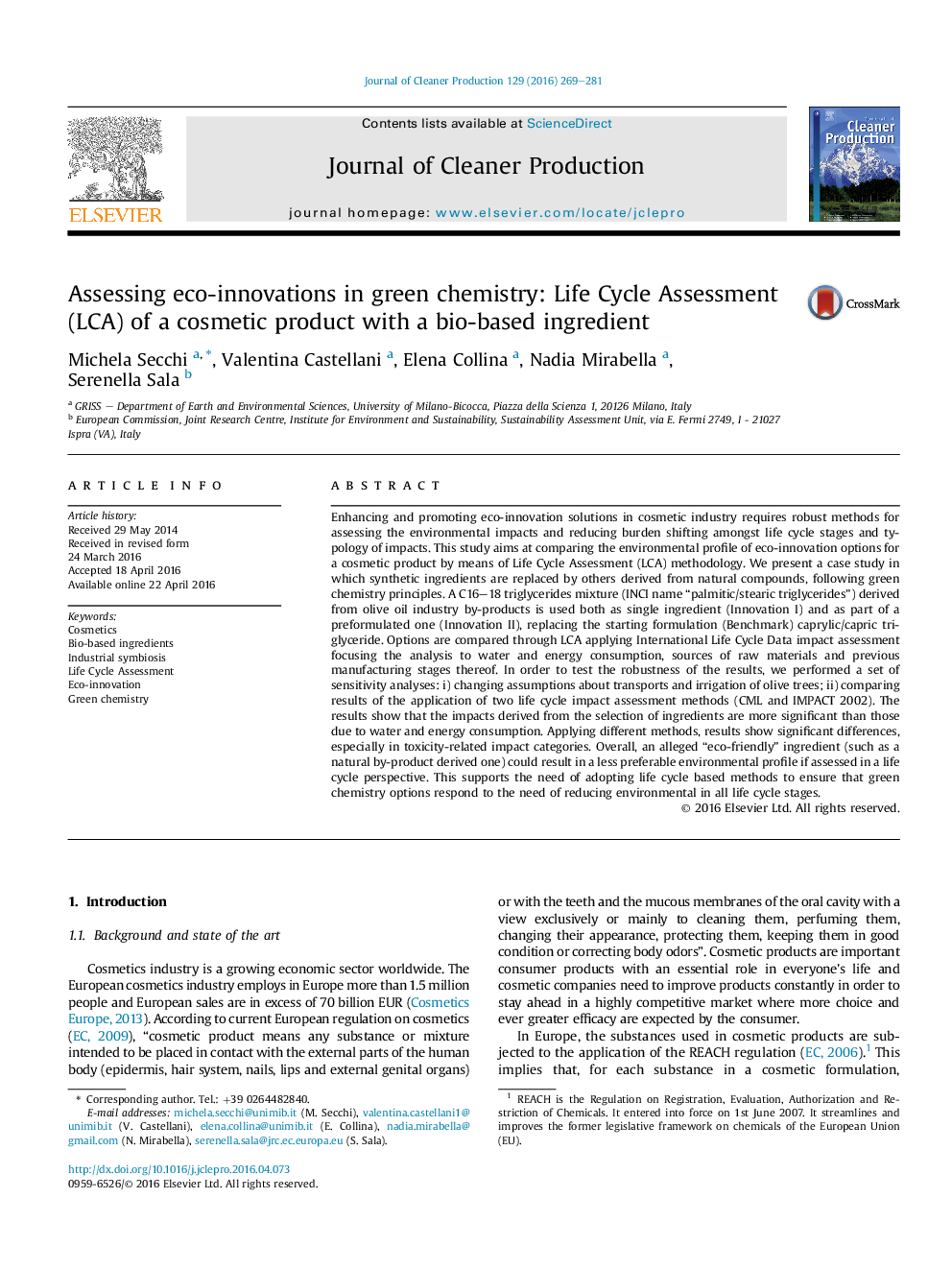| کد مقاله | کد نشریه | سال انتشار | مقاله انگلیسی | نسخه تمام متن |
|---|---|---|---|---|
| 8101878 | 1522120 | 2016 | 13 صفحه PDF | دانلود رایگان |
عنوان انگلیسی مقاله ISI
Assessing eco-innovations in green chemistry: Life Cycle Assessment (LCA) of a cosmetic product with a bio-based ingredient
دانلود مقاله + سفارش ترجمه
دانلود مقاله ISI انگلیسی
رایگان برای ایرانیان
کلمات کلیدی
موضوعات مرتبط
مهندسی و علوم پایه
مهندسی انرژی
انرژی های تجدید پذیر، توسعه پایدار و محیط زیست
پیش نمایش صفحه اول مقاله

چکیده انگلیسی
Enhancing and promoting eco-innovation solutions in cosmetic industry requires robust methods for assessing the environmental impacts and reducing burden shifting amongst life cycle stages and typology of impacts. This study aims at comparing the environmental profile of eco-innovation options for a cosmetic product by means of Life Cycle Assessment (LCA) methodology. We present a case study in which synthetic ingredients are replaced by others derived from natural compounds, following green chemistry principles. A C16-18 triglycerides mixture (INCI name “palmitic/stearic triglycerides”) derived from olive oil industry by-products is used both as single ingredient (Innovation I) and as part of a preformulated one (Innovation II), replacing the starting formulation (Benchmark) caprylic/capric triglyceride. Options are compared through LCA applying International Life Cycle Data impact assessment focusing the analysis to water and energy consumption, sources of raw materials and previous manufacturing stages thereof. In order to test the robustness of the results, we performed a set of sensitivity analyses: i) changing assumptions about transports and irrigation of olive trees; ii) comparing results of the application of two life cycle impact assessment methods (CML and IMPACT 2002). The results show that the impacts derived from the selection of ingredients are more significant than those due to water and energy consumption. Applying different methods, results show significant differences, especially in toxicity-related impact categories. Overall, an alleged “eco-friendly” ingredient (such as a natural by-product derived one) could result in a less preferable environmental profile if assessed in a life cycle perspective. This supports the need of adopting life cycle based methods to ensure that green chemistry options respond to the need of reducing environmental in all life cycle stages.
ناشر
Database: Elsevier - ScienceDirect (ساینس دایرکت)
Journal: Journal of Cleaner Production - Volume 129, 15 August 2016, Pages 269-281
Journal: Journal of Cleaner Production - Volume 129, 15 August 2016, Pages 269-281
نویسندگان
Michela Secchi, Valentina Castellani, Elena Collina, Nadia Mirabella, Serenella Sala,